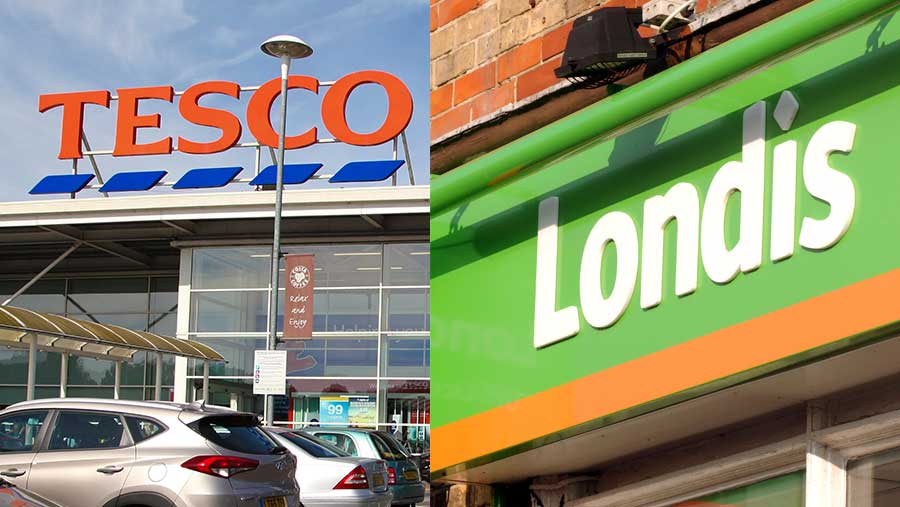Tesco and Booker say merger will boost suppliers
 © REX/Shutterstock
© REX/Shutterstock Tesco’s proposed merger with wholesaler Booker – the owner of Londis and Budgens – will further concentrate bargaining power in food supply chains, but the companies say it will create opportunities for suppliers.
The proposed deal is worth £3.7bn and would merge the UK’s largest supermarket and biggest food wholesaler to create a national giant.
Tesco said the move had been driven by the increased trend to eat out and the merger would allow the combined company to make use of this growth area.
One supply chain expert said that the extra muscle behind Tesco would further concentrate its bargaining power, although it was unclear how much difference this would make, given how concentrated it already was.
Opportunities?
However, the two companies said the merger would create a multi-channel supply chain covering groceries and catering, which would present opportunities for suppliers.
These would include providing “access to a wider range of channels and outlets”, with the chance to create own label brands as well as supplying existing products to a wider footprint.
The companies also said they anticipated buying the whole crop from fresh produce suppliers because of the increased range of routes to market the group would have. This may raise fears among suppliers about being overly dependent on one customer.
See also: Tesco milk suppliers to cut use of critical antibiotics
Another possible positive, was that Tesco’s buying culture had “markedly improved” under Dave Lewis, its chief executive since July 2014, according to Duncan Swift, a partner at Moore Stephens and head of its food advisory groups. This could rub off on Booker and improve its dealings with suppliers, he added.
Swift said: “Where you’ve already got so much buying power concentrated in such few hands, if that is further concentrated you’ve got more of the same dominance being exerted.”
“However, given the degree of bargaining power concentration [already], will this merger make a difference? Probably not.”
NFU President Meurig Raymond said: “The NFU will be examining the details of this proposed merger between Tesco and Booker and the further concentration of retail power it creates within the food supply chain to see what kind of affect it will have on farmer suppliers.
“Tesco has launched a number of positive initiatives to work with farmers such as the Tesco Sustainable Dairy Group and similar arrangements which support farmers. We would want to see these same initiatives carried through to the new business structure.
“This merger provides an opportunity for Tesco to take the best of its supply contracts into the wholesale/catering food distribution sector.”
“We would also like to see this new business structure apply to the principles of fair dealing, defined within the GSCOP code.
Uncertainties
The deal is likely to attract scrutiny from the Competition and Markets Authority and won’t be allowed to go ahead until approval is gained.
If the merger goes ahead, it is also unclear whether Booker’s supplier dealings would come under the remit of the Groceries Code Adjudicator.
About the companies
Booker operates a cash and carry network through 200 branches. It sells to independent retailers, catering and small business customers, and also serves national chains of retailers, cinemas and other organisations.
Tesco is the UK’s biggest food retailer and has 3,500 stores and clocks up 50m customer transactions a week.
Tesco shareholders will end up with 84% of Booker shares if the merger goes ahead.
